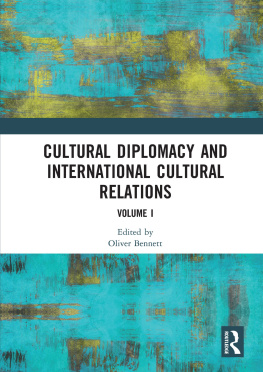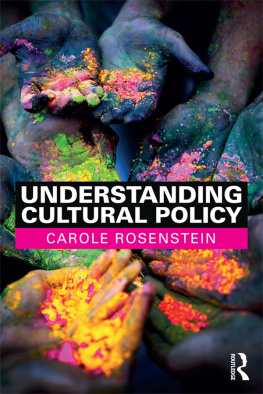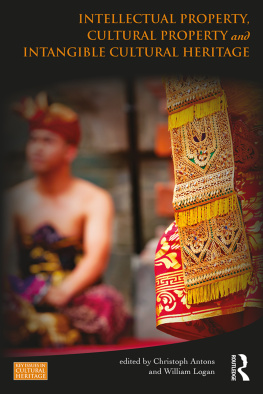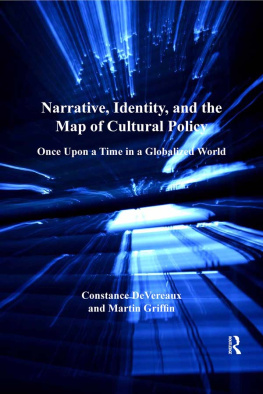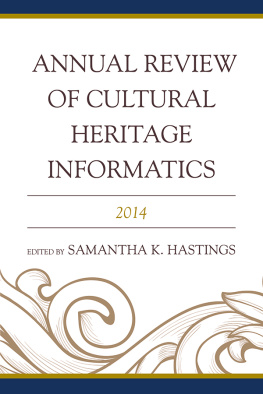Cultural Policy Review of Books
Cultures are shaped by many institutions and agencies, including governments, corporations, education and the media. In recent years, research into these culture-shaping activities has been increasingly associated with the developing field of cultural policy studies.
The Cultural Policy Review of Books offers a fascinating insight into the intellectual formation of many of the leading figures that have contributed to this field. Invited to write a short review essay on the book that had most influenced their thinking, 41 academics and researchers from around the world reveal what they consider to be essential reading.
Including essays on Bourdieu, de Certeau, Foucault, Gramsci, Habermas, and Williams, as well as many lesser known writers, the collection throws new light on the intellectual underpinning of cultural policy studies. It will be of interest not only to researchers, students and teachers in this field, but to all those looking to understand the forces that shape the culture of modern societies.
This book was originally published as a special issue of International Journal of Cultural Policy.
Oliver Bennett is Professor of Cultural Policy Studies at the University of Warwick, UK, and founding editor of the International Journal of Cultural Policy. He has published widely on cultural policy and cultural politics.
First published 2012
by Routledge
2 Park Square, Milton Park, Abingdon, Oxon, OX14 4RN
Simultaneously published in the USA and Canada
by Routledge
711 Third Avenue, New York, NY 10017
Routledge is an imprint of the Taylor & Francis Group, an informa business
2012 Taylor & Francis
This book is a reproduction of the International Journal of Cultural Policy, volume 16, issue 1. The Publisher requests to those authors who may be citing this book to state, also, the bibliograph cal details of the special issue on which the book was based.
All rights reserved. No part of this book may be reprinted or reproduced or utilised in any form or by any electronic, mechanical, or other means, now known or hereafter invented, including photocopying and recording, or in any information storage or retrieval system, without permission in writing from the publishers.
Trademark notice: Product or corporate names may be trademarks or registered trademarks, and are used only for identification and explanation without intent to infringe.
British Library Cataloguing in Publication Data
A catalogue record for this book is available from the British Library
ISBN13: 978-0-415-69547-3
Typeset in Times New Roman
by Taylor & Francis Books
Publishers Note
The publisher would like to make readers aware that the chapters in this book may be referred to as articles as they are identical to the articles published in the special issue. The publisher accepts responsibility for any inconsistencies that may have arisen in the course of preparing this volume for print.
Contents
Oliver Bennett
Jeremy Ahearne
Eleonora Belfiore
Peter Bendixen
Oliver Bennett
Tony Bennett
Franco Bianchini
Chris Bilton
Jennifer Craik
Stuart Cunningham
Milena Dragievi ei
Peter Duelund
Lisanne Gibson
Christopher Gordon
Clive Gray
David Hesmondhalgh
Stanley N. Katz
Nobuko Kawashima
Justin Lewis
David Looseley
Per Mangset
Jim McGuigan
Paola Merli
Toby Miller
Munira Mirza
Kevin V. Mulcahy
Graham Murdock
Andy C. Pratt
Sigrid Royseng
Michael Rushton
Philip Schlesinger
Sara Selwood
Dorte Skot-Hansen
Joost Smiers
Alan Stanbridge
Deborah Stevenson
David Throsby
Hans van Maanen
Geir Vestheim
Michael Volkerling
Li-Jung Wang
George Ydice
This volume gathers together some personal reflections on the intellectual influences of many of those that have contributed to the development of cultural policy as a field of academic enquiry. All contributors were invited to write short review essays on one book that had influenced their thinking and which they would want new students of cultural policy to read.
The collection thus serves a twofold purpose: it offers a fascinating insight into the intellectual force fields within which the study of cultural policy has grown up; at the same time, it provides a valuable resource for teachers of cultural policy, their stu ents and all those with a general interest in the field.
Oliver Bennett
Jeremy Ahearne
Department of French Studies, University of Warwick, Coventry, UK
The practice of everyday life, by Michel de Certeau, translated by S. Rendall, Berkeley, University of California Press, 1984 (original French edition 1980), 229 pp., paperback, ISBN 0-520-06168-3
The Practice of Everyday Life is Certeaus best-known work in the anglophone world, and its analyses of the ordinary processes of active appropriation have become classic points of reference. It develops a series of models that bring into focus dispersed and often invisible forms of creative operation. Readers are shown not passively to receive texts, but to produce their own secondary texts on the basis of the primary texts they negotiate, recombining and metaphorizing (transporting) their elements, and thereby producing singular concretions. Those who inhabit the towns built by planners and architects are shown, as it were, to create their own places within those spaces. The analyses can be extended in multiple ways for example, to those who visit the exhibitions of cultural institutions, or those charged with implementing cultural policies of all kinds. Users (such as ourselves) insinuate jarring or unpredictable elements into the cultural systems they negotiate (workplace directives, television schedules, literary canons, sundry recipes and manuals), thereby overdetermining those systems and filling them with microscopic fissures and rifts. As speaking subjects take hold of a preexisting linguistic system and bend it to their purposes while simultaneously following its laws, so Certeaus ordinary subjects are not simply moulded by the regulations and symbolic structures of social life. These constitute instead the material on which their practices of re-employment, metaphorization, insinuation and poeisis (cf. the Greek poiein, to make or create) can be put to work, with greater or lesser effect.
Readers of the book are sometimes surprised to learn that it originated as a report designed officially to chart future directions for French cultural policy. They are less surprised to learn that it had little direct purchase on that policy. The book is shot through with statements and, perhaps especially, figures that humiliate and bring low the claims of authorized interpreters and strategic policy makers to model the social body. The practices that effectively constitute this body are given metaphorical representation as an irrepressible, unchartable brownian motion, a teeming plurality of rumours and murmurs, a night-side of societies, a night longer than their days, an obscure sea from which successive institutions emerge, a maritime immensity on which socio-economic and political structures appear as ephemeral islands (p. 41). Such figures frame the books analyses and account for an important part of its seductive force. They can be used, not implausibly, to authorize libertarian and/or populist readings of the book.


